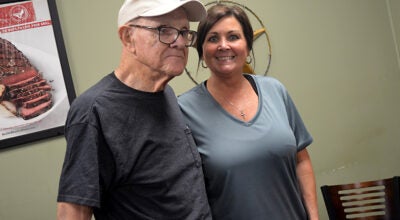Jobs report bleak for nation, but improving locally
Published 9:01 am Saturday, July 9, 2011
A dismal June employment report shows that nationally employers are adding nowhere near as many jobs as they normally do this long after a recession has ended, but local officials say Troy and Pike County are defying those trends.
Unemployment has climbed for three straight months and is now at 9.2 percent. There’s no precedent, in data going back to 1948, for such a high rate two years into what economists say is a recovery.
The economy added just 18,000 jobs in June. That’s a fraction of the 90,000 jobs economists had expected and a sliver of the 300,000 jobs needed each month to shrink unemployment significantly.
But in Pike County, local officials say the jobs outlook is considerably better. The unemployment rate was holding steady through June at 7.9 percent, well below the state average of 9.6 percent.
Mayor Jimmy Lunsford said Troy, as “small town America,” continues to do well because of industry expansion and our ability to attract industry.
“I think part of the reason our economy has done well is that we have not lost a lot of the businesses in Troy as some people have,” Lunsford said. “We are very diversified and have had expansions over the last couple of years at Sikorsky and more than one expansion at KW Plastics. We have been very fortunate to have CGI located here, hiring a considerable number of people. If you look around, Lockheed Martin is growing. We’ve just been very fortunate to have continuous growth as opposed to experiencing a lot of the downturn in the job market.”
With the new addition of Golden Boy Foods, which is expected to hire up to 130 employees within a year, Lunsford said the local economy should continue to feel the same positive effects that have been felt with past expansion and that Troy will continue to grow because of our attractive qualities.
“When we are recruiting industry or are assisting one of our local companies to expand, we try to point out the things that set us apart,” Lunsford said. “We have a lot of amenities of much larger locales. With the university here that is a big plus for us, our tax base is very faithful and our utility rates are lower than a lot of other places.”
Lunsford said the effects of new industry are most readily seen in the job market and it is due, in large part, to Troy’s attractive qualities that Pike County’s unemployment rate is as low as it is.
Nationally, the excruciatingly slow growth is confounding economists, spooking consumers and dismaying job seekers. Friday’s report forced analysts to re-examine their assumption that the economy would strengthen in the second half of 2011.
They had expected improvement in June after a bleak jobs report for May. They figured that hiring in May had been artificially weakened by temporary factors — a run-up in gasoline prices to $4 a gallon and factory disruptions caused by Japan’s earthquake and nuclear crisis.
But the June numbers were even worse than May’s, even though gasoline prices are falling and factories revving up again.
“This is a remarkable, across-the-board backslide,” says economist Heidi Shierholz of the Economic Policy Institute.
Sometimes disappointing economic reports look better on closer inspection. This one gets uglier.
Workers’ hourly pay fell in June. They worked fewer hours. And 16.2 percent of those who wanted to work were either unemployed, forced to settle for part-time jobs or had given up looking for work. That figure was up from 15.8 percent in May.
Among the frustrated is Cris Cohen, who was laid off in April from a job as a contractor for Cisco Systems in Raleigh, N.C. He’s been searching for work since then, futilely combing job listings, reaching out to friends and setting up a website with a resume and a blog.
“In the past when I’ve left jobs or been laid off, I’ve just contacted connections I have had, and that’s led to opportunities,” says Cohen, who has a wife and a 9-year-old son. “Now it’s just seems much more dry…. There’s just always that anxious feeling, that nausea.”
One problem is that after slashing jobs during the Great Recession, employers are still reluctant to replace them. They’ve learned to squeeze more work and revenue out of reduced staffs. Productivity and corporate profits have soared. But companies don’t want to add workers until they’re confident that consumers are spending enough to support higher sales.
Other factors are restraining hiring, too. More sophisticated software lets managers scrutinize changes in their businesses minute-by-minute. They can postpone hiring until they’re certain they need more workers.
Employers have good reason to wait, says economist Ken Mayland at ClearView Economics. A political standoff over the federal debt limit threatens to send the U.S. government into default next month. That would send interest rates soaring and might tip the economy back into recession.
The Associated Press contributed to this report.





